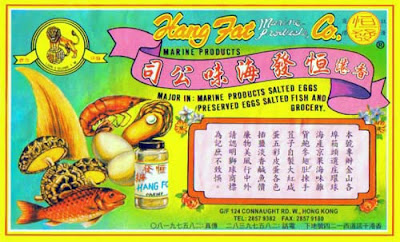 Sure, there's more centerpiece here than table.
Sure, there's more centerpiece here than table. But when you can gaze on these beauties, who needs mere surface?
 Gli affari sono affari! - "Business is business!"
Gli affari sono affari! - "Business is business!"Settembre 1 Ultimo Quarto... Prime piogge abbondanti mitgano la tempuratura estiva.Rhyming proverbs with religious morals:
September 1 Last quarter... the first heavy rains moderate the summer temperatures
A chi crede - Dio provvedeAnd general philosophizing, mostly expressed in rhyme:
To those who believe - God provides
Beato chi vede con l'occhio della Fede
Blessed are those who see with the eye of faith
Chi spreca ogni risorsa - non termina la corsaThere are proverbs that seem equivalent to some in English:
Who squandered every resource - does not finish the race
Dove sta la rana - l'acqua non è lontanoLike the messages inside chocolate baci wrappers, there are lovely-sounding Italian rhymes that fall flat in English:
Where is the frog - water is not far
["Where there's smoke there's fire"]
Non dire mai "gatto!" - se non l'hai nel sacco
Never say "cat" - if you have not in the bag
["Don’t count your chickens..."; but with disturbing imagery]
Amor perso in un momento - non si riacquista in anni centoAwkward translation grammar isn't too hard to clean up, but idioms that stump the translator have me stumped, too:
Love lost in a moment – will not return in one hundred years
Quando soffia Madam Fortuna- i granelli fan presto una duna
When it blows Madam Fortuna soon fans grains into a dune
Di ogni altro amore è perno - il sincero amor maternoThere are even weather and agricultural reports in rhyme:
Each pin is another love - the true maternal love
Non c'è mucca così netta - che non abbia una macchietta
There is no clear-cut cow - which has not a speck
Se piove il quattro di Settembre - si sta a bagno fino a DicembreAnd, were truer words ever written?
If it rains on the 4th of September - it will soak until December
Settembre amico - apre mandorla e fico
September friend - opens [start of harvesting?] almond and fig
Bolli, scartoffie e fogli - il mondo è pieno d'imbrogliAnd in a world full of managers like the guy in the sheepskin: one can only try to look absorbed in the spreadsheets, while praying the boss takes note and walks on by...
Stamps, paperwork and spreadsheets - the world is full of tricks


 "Traffic Report"
"Traffic Report"Today, thanks to the miracles of progress, can also change the proverbs. And then there are those who think it is useless to continue to lower speed limits, especially for those who want to bust, 50 or 100 does the same. And then the proverb says: "Never did good dog chain." Has anyone else tried to make us even on irony: "If we think about it, the more you stay on the road, the greater the chances of accidents: prudence therefore advised to go at full speed." (Lucie Olbrechts-Tyteca). The reasoning seems to spin, but when we open the newspaper or turn on the TV, always jumps out of the usual news: "A long row, close the street, made a pass and so be it!" In life you can correct many errors, but in traffic, no, "It is true that those who arrive late ... bad park," but it is equally true that "we must not disturb the misfortunes when they sleep." Psychologists say that to protect the shell of your car, even the timid become lions, but what's the point then, if you just fall back rabbits? In conclusion, my advice is to drive carefully in mind cleared, and moderate speed, without competition of strength or cunning, and above all respect the traffic lights (keep an eye on the yellow ... traitor), because in crazy and chaotic bustle of life today, were the only instruments capable of us together.The "Favorable Days" prediction sounds pretty much like Italian traffic:
unfavorable critical months that cause psychological distress in addition to possible geophysical consequences.

 |
| Handmade post cards: wood veneer, ink painting, calligraphy, and paper [moon]. |